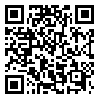Volume 16, Issue 1 (Spring (COVID-19 and Older Adults) 2021)
Salmand: Iranian Journal of Ageing 2021, 16(1): 74-85 |
Back to browse issues page
Download citation:
BibTeX | RIS | EndNote | Medlars | ProCite | Reference Manager | RefWorks
Send citation to:



BibTeX | RIS | EndNote | Medlars | ProCite | Reference Manager | RefWorks
Send citation to:
Negarestani M, Rashedi V, Mohamadzadeh M, Borhaninejad V. Psychological Effect of Media Use on Mental Health of Older Adults during the COVID-19 Pandemic. Salmand: Iranian Journal of Ageing 2021; 16 (1) :74-85
URL: http://salmandj.uswr.ac.ir/article-1-2094-en.html
URL: http://salmandj.uswr.ac.ir/article-1-2094-en.html
1- Social Determinants of Health Research Center, Institute for Futures Studies in Health, Kerman University of Medical Sciences, Kerman, Iran.
2- School of Behavioral Sciences and Mental Health (Tehran Institute of Psychiatry), Iran University of Medical Sciences, Tehran, Iran.
3- Mane and Semelghan Health Center, North Khorasan University of Medical Science, Bojnurd, Iran.
4- Neuroscience Research Center, Institute of Neuropharmacology, Kerman University of Medical Sciences, Kerman, Iran. ,v.borhaninejad@kmu.ac.ir
2- School of Behavioral Sciences and Mental Health (Tehran Institute of Psychiatry), Iran University of Medical Sciences, Tehran, Iran.
3- Mane and Semelghan Health Center, North Khorasan University of Medical Science, Bojnurd, Iran.
4- Neuroscience Research Center, Institute of Neuropharmacology, Kerman University of Medical Sciences, Kerman, Iran. ,
Abstract: (7602 Views)
Objectives: Low media literacy and exposure to media-produced content during the Coronavirus Disease 2019 (COVID-19) pandemic can affect the health of people in the community. This study aims to investigate the psychological effects of media use on the mental health of community-dwelling older adults.
Methods & Materials: In this descriptive-analytical study with a cross-sectional design, 200 elderly people aged ≥60 years participated who were selected from daycare rehabilitation centers and retirement centers in Kerman, Iran in 2020 using a convenience sampling method. Data were collected using a demographic form (Surveying age, gender, education, occupation, marital status, income, and media use), and the 12-item General Health Questionnaire.
Results: The mean age of participants was 66.60 ± 5.08 years. More than three-quarters of them were following the latest COVID-19 news via media (Local radio and television). Most of them (77.4%) had poor mental health status. Higher educational level (P<0.001), employment (p=0.003), and low frequency of media use (P<0.001) were the protective factors against poor mental health. High-frequency media use was a risk factor for the mental health of older adults during the COVID-19 outbreak.
Conclusion: The mental health of community-dwelling older adults during the COVID-19 pandemic is affected by media use and its frequency. It is recommended that older adults should avoid following the latest COVID-19 news, especially those from unreliable sources. Moreover, media managers should have more control over the news related to the COVID-19.
Methods & Materials: In this descriptive-analytical study with a cross-sectional design, 200 elderly people aged ≥60 years participated who were selected from daycare rehabilitation centers and retirement centers in Kerman, Iran in 2020 using a convenience sampling method. Data were collected using a demographic form (Surveying age, gender, education, occupation, marital status, income, and media use), and the 12-item General Health Questionnaire.
Results: The mean age of participants was 66.60 ± 5.08 years. More than three-quarters of them were following the latest COVID-19 news via media (Local radio and television). Most of them (77.4%) had poor mental health status. Higher educational level (P<0.001), employment (p=0.003), and low frequency of media use (P<0.001) were the protective factors against poor mental health. High-frequency media use was a risk factor for the mental health of older adults during the COVID-19 outbreak.
Conclusion: The mental health of community-dwelling older adults during the COVID-19 pandemic is affected by media use and its frequency. It is recommended that older adults should avoid following the latest COVID-19 news, especially those from unreliable sources. Moreover, media managers should have more control over the news related to the COVID-19.
Type of Study: Research |
Subject:
Psychology
Received: 2020/09/11 | Accepted: 2020/12/29 | Published: 2021/04/01
Received: 2020/09/11 | Accepted: 2020/12/29 | Published: 2021/04/01
Send email to the article author
| Rights and permissions | |
 |
This work is licensed under a Creative Commons Attribution-NonCommercial 4.0 International License. |








